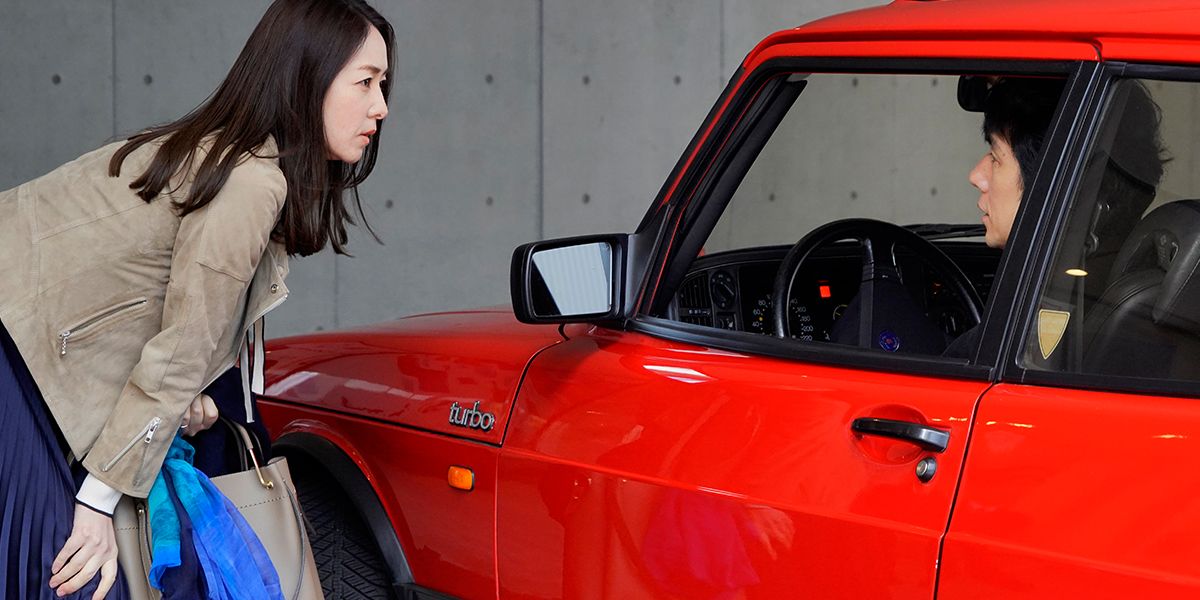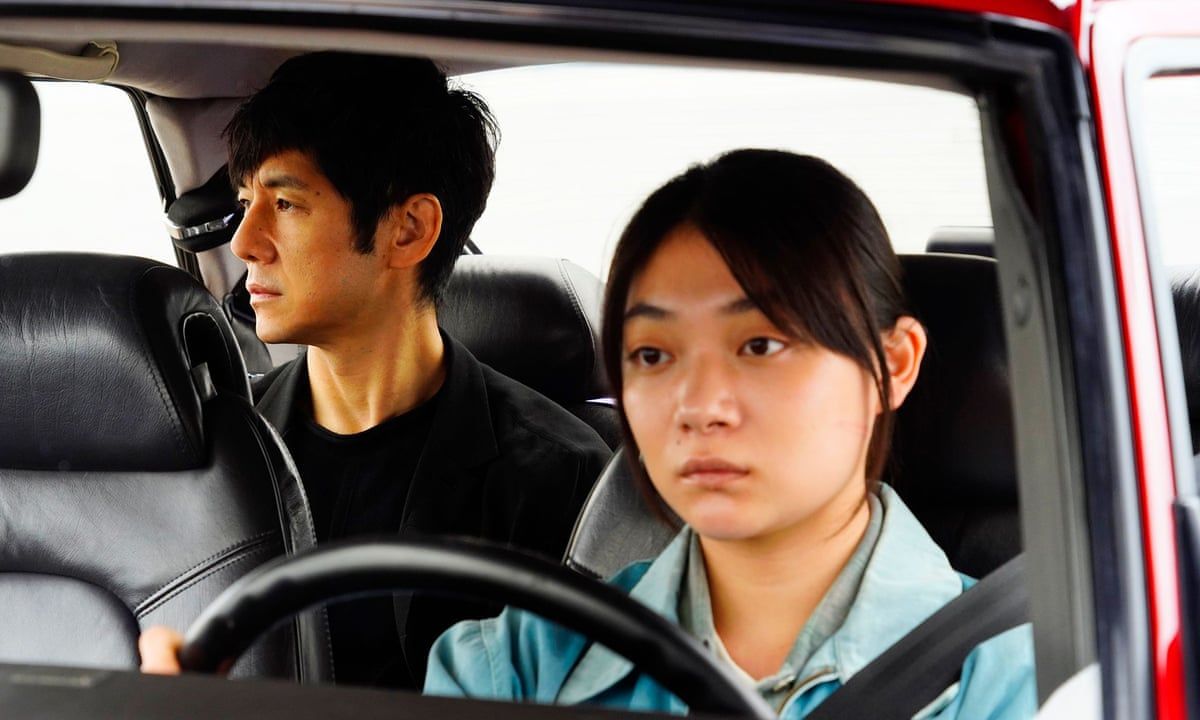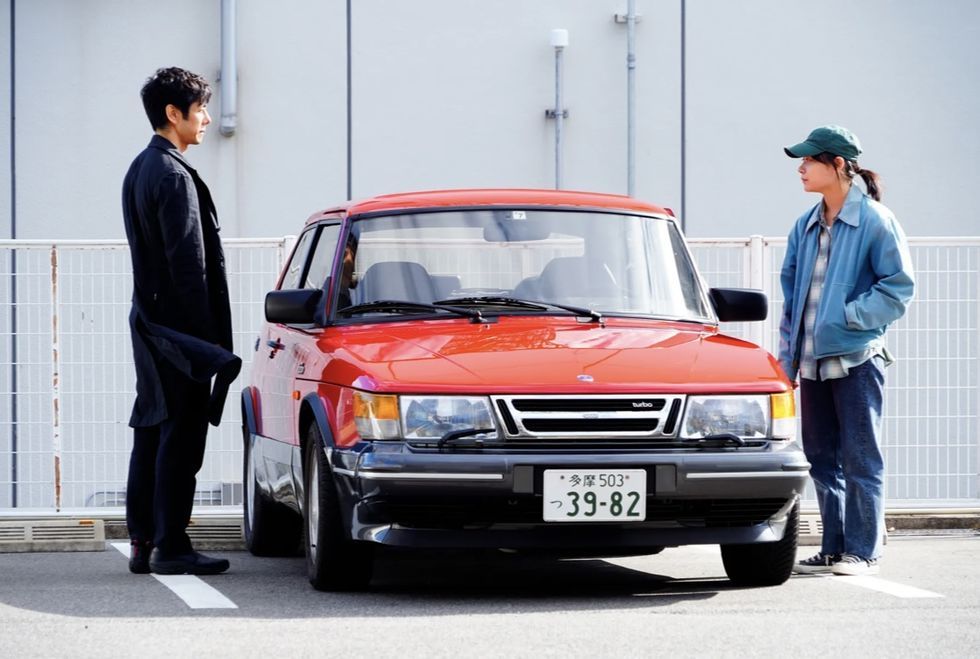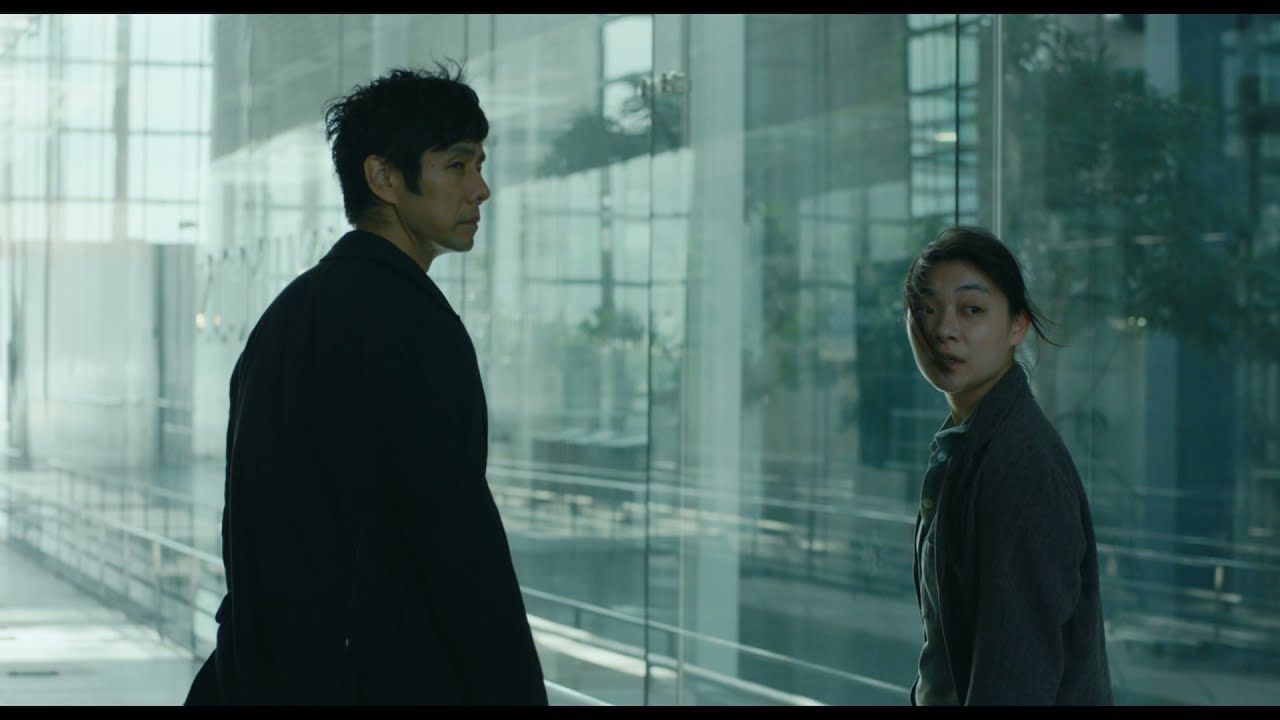Drive My Car is the 2021 Japanese road drama film directed and co-written by the great Ryusuke Hamaguchi with Takamasa Oe, based on the short story of the same name written by the famous Haruki Murakami (Norwegian Wood, 1Q84). With nearly three hours of running time, this picturesque and melancholic drama is almost certain to garner some recognition at the upcoming Academy Awards. It was selected to be in line for the Palme d’Or at the 2021 Cannes Film Festival, where it also won Best Screenplay. It then became the latest, and the first non-English-language film, of the only six movies to win Best Picture from all three of the major US critics circles (LA, NY and NSFC), the other five being Goodfellas, Schindler's List, L.A. Confidential, The Social Network and The Hurt Locker. If this is any indication, Drive My Car might even get a Best Picture nomination.
This enchanting masterpiece about life, love, and grief follows Yūsuke Kafuku (Hidetoshi Nishijima), who is directing a stage production of Anton Chekhov’s play Uncle Vanya while grappling with the unexpected death of his wife, Oto (Reika Kirishima). The lucid storytelling breaks and rebuilds its audience with a hauntingly mesmerizing sense of poise, control, and quiet. Whether it wins or is just nominated for the Best International Film Oscar (or anything else), these are five top reasons why Drive My Car should be, and why you should bump it to the top of your queue right now.
The car, of course
The beautiful vintage red Saab 900 Aero coupe is enough to make any car fan see this movie. What's more, it almost functions as a character of its own, a companion to Yūsuke’s story and his quest for a sense of belonging. Much of the best dialogue, storytelling, and impactful moments of shared silence happen within the space of the car. Yūsuke is assigned a driver called Misaki Watari (Toko Miura), a 23-year-old woman, whom he is at first disapproving of and refuses to let drive his precious car, but as their relationship develops, she drives him around the concrete city within the swift splash of red, and a quiet and unexpected companionship forms. When asked about how her driving is, he says, “I think it’s great. When she speeds up or slows down, it’s very smooth and doesn’t feel heavy at all. I sometimes forget that I’m even riding in a car. I’ve ridden cars driven by other people, but this is the first time it’s been this comfortable.” Misaki is such a good driver that being on the road with her becomes a revelatory and soothing experience, a much-needed balm for the character' pain.
In an interview with Gold Derby, the director said, "Having conversations within the car itself, I think, is something that lends itself to being cinematic because you have something that’s actually moving." Hamaguchi continues, "And then again, within the space, you’re having this conversation. It’s a way to build up relationships between the characters." The titular vehicle in Drive My Car is one of the most memorable and colorful metaphors of 2021.
The beautiful, dialogue-driven writing
The film begins in Tokyo, in an incredible 40-minute opening prologue detailing Yūsuke Kafuku's relationship with his wife Oto, a screenwriter who has the humorous tendency to create stories during sex. They are both haunted by the loss of a child, a tragedy which has caused their relationship to become frayed. When he finds that his wife is cheating on him with a younger man, he refuses to confront the situation, but then she unexpectedly dies of a cerebral hemorrhage and leaves the man without a sense of closure. The plot jumps forward two years, and only then do the opening credits begin to play.
We meet Kafuku again in Hiroshima, directing a strange version of Anton Chekhov’s Uncle Vanya while processing his grief. All of this is detailed with brilliant writing, using asides and monologues throughout the film which captures the crisp and poetic style of Haruki Murakami, who often makes poetry of the mundanity of life. The film is almost entirely dialogue-driven (no pun intended), but the incredible script and the actors who embody them make it work on both an emotional and psychological level.
Hidetoshi Nishijima's portrayal of the main character
There is something about Yūsuke in this character study that feels both pacifying and universally identifiable; he represents a stable, honest form of masculinity that is both aspirational and consoling, one that pervades Drive My Car as we follow his story and empathize with his losses and strife throughout. He has a boyish innocence to him that feels trusting and paternal, and yet internal conflicts which make him utterly realistic. What helps him be particularly endearing, ironically, is his protective connection to his car, which acts as an allegory for so many of his life's losses.
In an interview with The Playlist, Nishijima notes his concern around the characterization of Kafuku during filming, which ended up being a great success: "Whether he’s changing his gaze or he’s changing [himself …] he’s almost expressionless, and his expression changes slightly. These are all very specific things that I think the audience, they’re concentrating on. They have to pick this up from very slight and subtle changes in the character." The actor does an incredible job of embodying Yusuke with total subtlety and believability, delivering one of the best performances of the year.
Grief functions as a process of strife and hope
While it may not have been the entire focus of the film, grief plays a large role in the mood of Drive My Car. The director continued to tell Gold Derby,
I think that really speaks to the universality of this story that this is something that affects anyone who’s living their lives and if they live a rich life that’s something that’s certainly going to happen to them more than once [...] And this happens, but life goes on. Life has to go on, and it’s through the repetition of this that we build our lives.
Ryusuke Hamaguchi provides a totally realistic portrayal of grief this way, in how the film realizes that the world doesn't simply end when a life or love does, and that everyone has to keep marching onward no matter how. "These are things that occur only with time," Hamaguchi told Screen Slate, and his three-hour running time allows this to play out with comfort and space.
The power of storytelling in an embedded narrative
The function of the Chekov play builds out a subplot that emphasizes the difficulties found in how people communicate and express emotions without a shared language. In Kafuku’s car, lines are rehearsed, creating soliloquies of love, life, and grief like a soundtrack to the enduring car journeys.
Hamaguchi thought it was important to expand on the embedded play for the film, with Kafuku, who is also starring in his play, reciting lines that relate to his own feelings. "This fills in the gaps of the emotions that Kafuku’s not expressing," the director said. "It adds this explanation that we are not getting directly from Kafuku, but actually directly relates to his life and, as a result, the audience is able to understand or feel the emotions that Kafuku has."
This meditative and heart-breaking journey will cast a spell over you with its melancholy characters in existential crisis and its sometimes brazen truth-telling about the trials and tribulations of life. The film has the power, like the best and most healing art, to both break and then console audiences in their return to reality. Drive My Car is an award-worthy masterpiece that should no doubt be nominated (and even win) in this year’s Oscars season.




